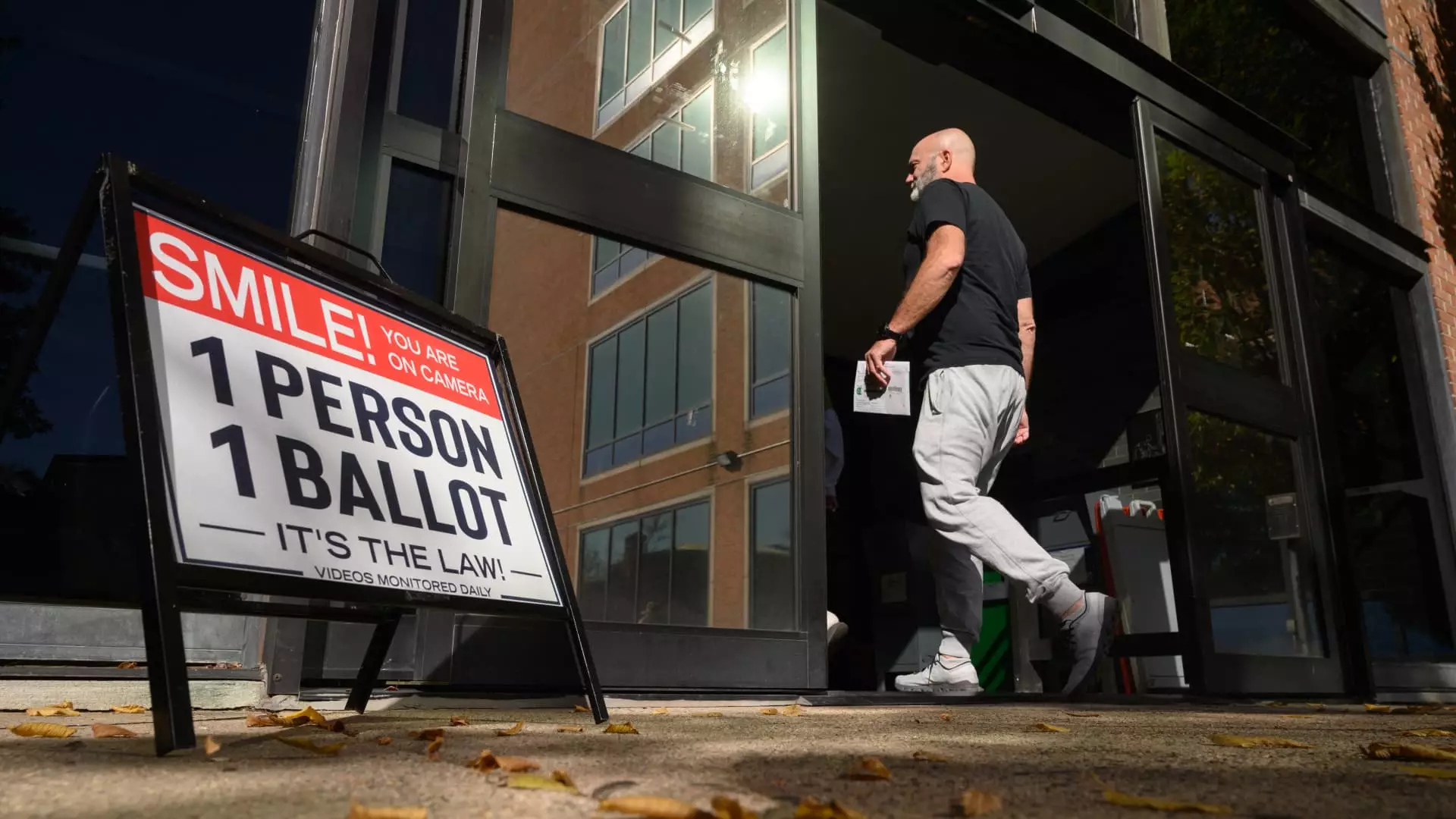The recent ruling from the Supreme Court concerning mail-in ballots in Pennsylvania highlights the contentious intersection of election law, voter rights, and partisan politics. This decision — allowing voters whose mail-in ballots were deemed defective to cast provisional in-person ballots — is not just a technical adjustment to election procedures; it represents a crucial step in the wider debate over voting access and voter integrity that shapes today’s electoral landscape.
The legal dispute originated from the Democratic primary in Butler County, Pennsylvania, where a small number of voters submitted ballots that were later flagged as lacking the required secondary “secrecy envelopes.” While the primary may seem distant, the implications of the ruling echo through the political landscape, potentially affecting thousands of voters in future elections. The decision represents an essential win for proponents of voting rights, particularly in swing states where the margin of victory is often razor-thin.
Justice Samuel Alito, alongside Justices Clarence Thomas and Neil Gorsuch, noted in his statement that the issue raised is “of considerable importance,” yet advised against urgent judicial intervention. This ambivalence from conservative justices raises questions about the judicial role in electoral processes and may serve as a precursor to deeper divisions in future rulings regarding election law.
The Supreme Court’s decision not only provides immediate relief to those affected but also sets up a framework for how similar situations will be handled moving forward. Provisional ballots, which serve as a safeguard to ensure every eligible vote counts, have been a critical tool for navigating the complexities of voter access. However, the inconsistent application of this option across different counties complicates the matter further. Some local election offices have allowed provisional ballots for certain deficiencies, while others adhere strictly to the letter of the law, as interpreted by the Republican challengers.
This discrepancy raises broader concerns: how can citizens trust their electoral processes when guidelines are not consistently applied? Potentially thousands of ballots, especially in a crucial cycle leading up to the 2024 elections, hang in the balance. The specter of litigation looms as both parties prepare for the ensuing battle.
The Republican Response
The Republican National Committee’s challenge to the ruling underscores their longstanding narrative that election procedures need to maintain strict adherence to established laws. Their argument leans heavily on the belief that any deviation from the written regulations constitutes a threat to electoral integrity. This perspective, however, has been contested by many election law experts and advocates who argue it presents an undue barrier to voter participation.
The party’s objection not only speaks to the current case but taps into a broader campaign narrative that seeks to characterize changes to voting laws as the erosion of democratic standards — a theme that has amplified since the 2020 election. The former president himself continuously insisted that widespread fraud was rampant during that election cycle, despite the lack of substantiated evidence.
An intriguing facet of this ongoing legal saga centers around the question of legislative authority over election rules. Following a ruling that appears to contradict a strict interpretation of election conduct, questions emerge regarding whether state courts overreach their boundaries by amending or interpreting voting laws in a manner that Republican legislators deem inappropriate.
The Republican interpretation of the law suggests that any minor error should fully disqualify a ballot, which could have reached beyond just the secrecy sleeves to include signature issues and date discrepancies. This zero-tolerance approach poses serious implications for voter engagement, especially among marginalized populations, who may already face barriers to access.
The Broader Implications for Future Elections
As we approach the 2024 general election, the landscape in Pennsylvania promises to be contentious. The tension between voter accessibility and the stringent enforcement of election laws highlights a critical challenge for both parties. With the Republican National Committee gearing up for legal challenges across swing states, Pennsylvania could become a litmus test for how these issues will unfold nationally.
The Supreme Court’s recent decision, while reflecting a momentary respite for voters like Faith Genser and Frank Matis, does not definitively close the door on contentious debates surrounding voting access and election integrity. Observers will undoubtedly keep a watchful eye on both court proceedings and the legislative maneuvers of the upcoming election cycle, as they may set the stage for the future of voting in the United States.
Ultimately, this evolving situation is more than just a legal battle; it is a reflection of democratic engagement in a vital swing state, with implications that will reverberate across the nation as we head towards a pivotal electoral year. As the legal intricacies develop, the fundamental question remains: how can we safeguard both the integrity of elections and the rights of all voters?


Leave a Reply